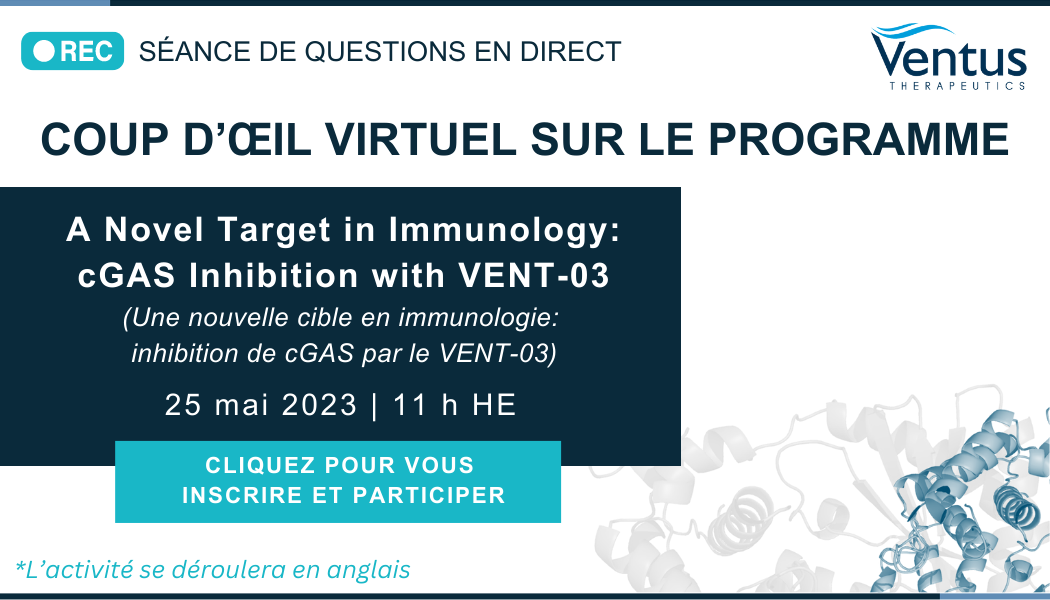About
Creating exceptional medicines with structure and ReSOLVE™
Ventus Therapeutics is a clinical-stage biopharmaceutical company deploying leading-edge structural biology and unique computational chemistry tools to develop a robust pipeline of novel medicines in immunology, inflammation, and neurology.
Others are building towards a future transformation of the drug development process…for Ventus, that future is already here.
Ventus develops differentiated therapies at a fast pace. We screened our first target in 2020 and nominated three development candidates in 2022: VENT-03, a first-in-class cGAS inhibitor; VENT-02, a best-in-class brain-penetrant NLRP3 inhibitor; and VENT-01, a systemic NLRP3 inhibitor. We entered the clinic with our two wholly-owned programs, VENT-02 and VENT-03, in 2023 and the Phase 1 clinical trials are ongoing.
These programs exemplify our unique capabilities and ability to generate first- and best-in-class drugs for immunology and neurology targets, by addressing prevalent diseases with relevant unmet needs.
Our pipeline and portfolio of discovery programs have been enabled by our proprietary drug discovery platform, ReSOLVE™, which creates dynamic hydrocophore™ blueprints that define protein pockets with an unparalleled level of resolution and guides the development of differentiated therapies at a fast pace.


